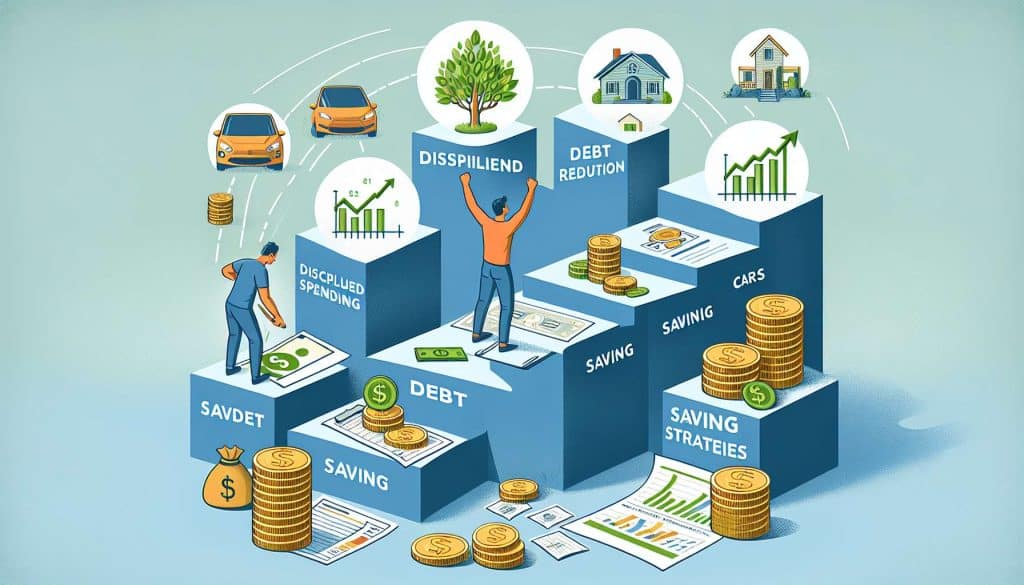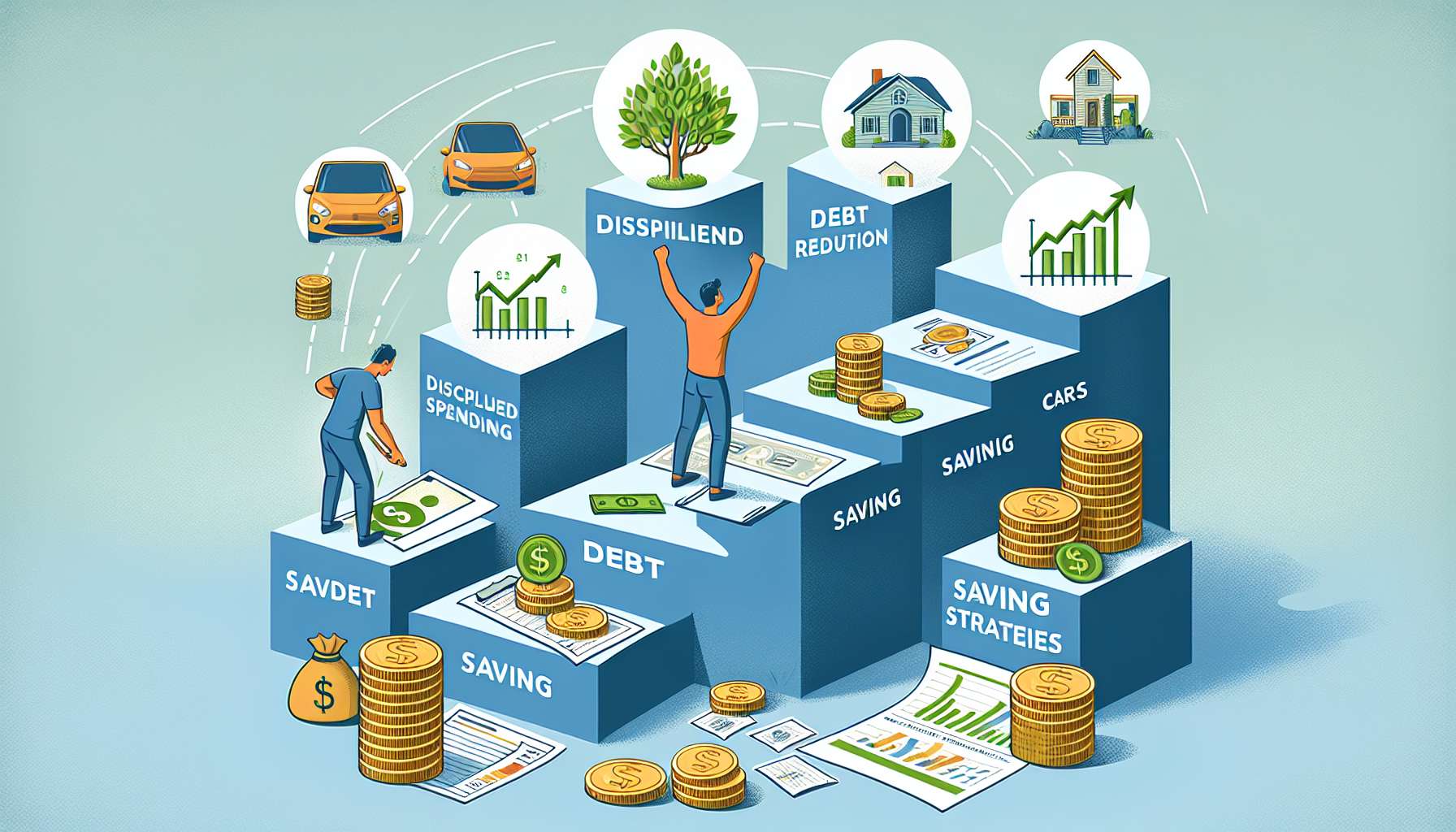Master Your Finances: A Step-by-Step Guide to Achieving Financial Freedom


Understanding and Mastering Personal Budgeting: Your Path to Financial Freedom
In an age where economic independence is paramount, personal budgeting is more crucial than ever. Rather than merely tracking expenses, budgeting represents a holistic strategy for managing your income, expenditures, savings, and debts. Yet, the approach is often avoided due to misconceptions of it being confining or complicated. This article seeks to demystify personal budgeting, providing clear guidance and applicable advice to help you achieve financial independence.
Anúncios
Without further ado, understanding why personal budgeting matters is vital. It enables precise financial decisions concerning spending and savings. Budgeting grants insight into spending trends, aids in debt management, and ensures preparedness for future needs. A well-structured budget reduces stress by clarifying your financial picture, enabling sound spending practices, avoiding unnecessary debt, and potentially boosting savings.
Embarking on your budgeting journey begins by crafting an effective budget. This article will guide you through the significant steps to take. Firstly, evaluate your financial position by gathering vital documents—bank statements, bills, and other financial records. By analyzing these, you can categorize fixed and variable expenses. This foundational understanding helps individuals identify financial strengths and areas for improvement before setting budget goals.
Once your financial position is clear, the next stage involves setting goals. Determine what you’re saving for, whether it’s short-term like a vacation or long-term such as retirement. Having definitive and achievable financial goals provides direction for your budget. The key is prioritizing these goals based on your personal financial capacity and necessities. Clear goals provide motivation and focus, setting you on the right path.
With goals set, select a budgeting method that compliments your lifestyle. Popular methods include the envelope system—allocating cash to various categories, zero-based budgeting—where every dollar is assigned a purpose, and the 50/30/20 rule—dividing income based on needs, wants, and savings. Choose what suits you best, allowing yourself flexibility to adapt as you gain better insight into managing finances in line with personal habits.
Tracking your expenditures post-budget implements accountability. Whether using apps, spreadsheets, or note books, recording transactions keeps you aligned with budgetary constraints. Monitoring expenditure emphasizes areas requiring restraint and spots opportunities for budget cuts. Habitual tracking and adjustments ensure your budget remains responsive to changes in your financial situation.
Importance and Implementation of Personal Budgeting
To fully grasp personal budgeting, understanding its significance alongside practical application is necessary. Budgeting equips individuals with tools to manage earnings and expenses efficiently. It is about more than clipping spending—it’s a powerful financial roadmap guiding personal finances toward a stable future. Developing a budget encompasses setting realistic goals, selecting a fitting approach, and tracking habits.
A successful budget prevents financial distress by reducing impulsive spending. By demystifying personal budgeting’s complexities, it becomes an empowering activity. It is crucial for individuals to debunk the myth of budgets being restrictive, rather focusing on their capacity for providing structure and insight into financial health. This reorganizes resources to better handle unforeseen circumstances, preemptively easing potential fiscal stress.
Common pitfalls in budgeting must be acknowledged to maintain consistency. Overly rigid budgets frustrate rather than guide, so introducing flexibility is key. It’s prudent to factor occasional irregular expenses into your planning, adjusting as life’s circumstances evolve. In household budgeting, ensuring involvement from all parties fosters understanding and cooperation, leading to unified financial goals and pathways forward.
Characteristics and Key Points of Personal Budgeting
- Empowers informed financial decisions
- Offers a structured financial plan
- Allows for easier debt management
- Highlights financial priorities
- Enables targeted saving strategies
Benefits of Personal Budgeting
The advantages of budgeting transcend financial boundaries, offering psychological relief. Keeping financial control diminishes anxiety and boosts confidence. Security is bolstered as you are strategically equipped for emergencies. Reaching goals enhances motivation and expands forward-thinking aspirations. Budgeting essentially transforms the financial landscape, reframing potential limitations into opportunities for growth and confidence.
Budgeting also nurtures self-discipline, an invaluable life skill that extends beyond financial realms. Consistently practicing budgeting fosters long-term prudent financial habits. It simplifies the complexities of financial decisions by presenting clear-cut insights into your financial situation, simplifying life-planning decisions. Empowering through structure invites increased peace of mind and reduced uncertainty.
Today’s tools facilitate simpler budgeting implementation. Digital apps like Mint and YNAB connect to your bank accounts, offering real-time insights into spending habits. With educational platforms such as Coursera or financial advisors available, personalized guidance caters to varying needs, ensuring individuals are well-equipped to craft effective plans. These resources tailor the budgeting process, making it approachable and supportive.
- Enables strategic planning for short and long-term goals
- Reduces financial stress and uncertainty
- Fosters self-discipline and financial responsibility
- Utilization of modern apps and tools for efficiency
- Adaptability ensures relevance to personal circumstances





